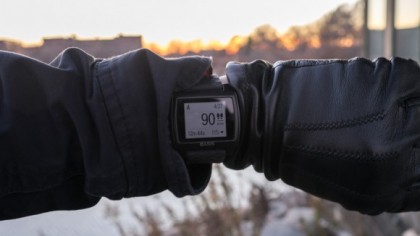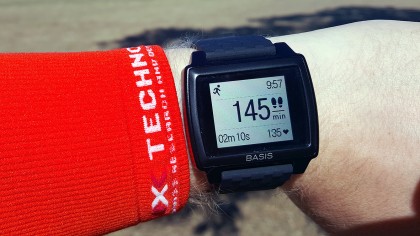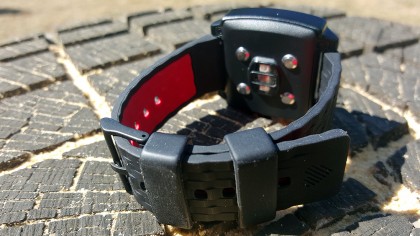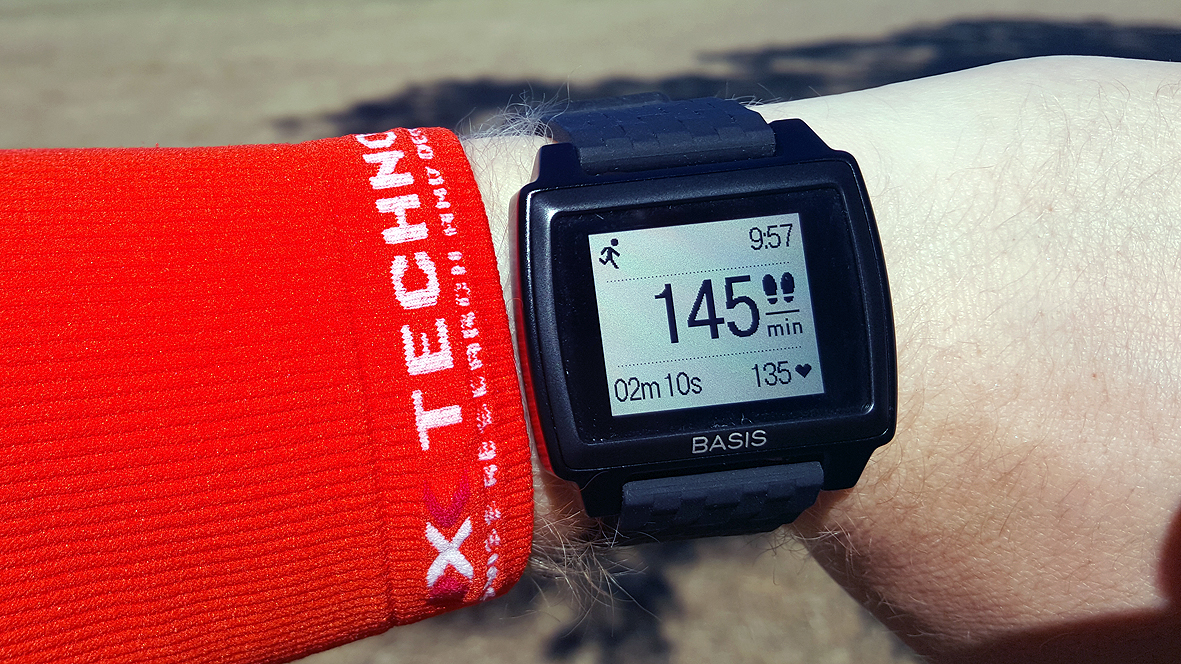Why you can trust TechRadar

Lifestyle tracking
I'll come to 'proper' sport and fitness tracking on the next page, but let's start with general lifestyle tracking. Essentially the Basis Peak is one of the most powerful lifestyle/fitness/health trackers I've seen - up there with the Microsoft Band in terms of what it can do technically.
It's a good step counter - reliable enough, and giving a solid if not totally believable breakdown of distance travelled and calories burned. It also tracks a number of other metrics, above and beyond what a standard fitness tracker will manage.
The issue is that while it'll track your lifestyle as a whole in lots of deep detail, you'll need to interpret it for yourself, because the Basis Peak doesn't do it for you.
If you've ever wanted to see what your heart rate, perspiration and body temperature are like during the day, the Basis Peak lets you do so, but it just defied my data-crunching abilities to get any sense out of it. The detail becomes almost annoying in it's mindless, decontextualised intensity, daring you to remember what you were doing when any given reading was logged.
More usefully, unlike the Basis B1 Carbon Steel, the interface on the watch does now let you see a lot of the more basic info it holds. The Peak adaptively switches the main screen to an activity tracking mode that presents your calories burned and steps taken in big bold numbers, and you can also scroll through any of your previous activities from the day, from a quick walk to the corner store to a 10,000 step jog. This corrects one of my biggest gripes with the original Basis smartwatch, where you could only access information on your workouts with the smartphone app or the website.

Running and exercise tracking
First up, the Basis Peak lacks GPS. That's fair enough if Basis is looking to reduce bulk and extend battery life. However, while it can send its heart rate data (see below) to apps including Endomondo, Strava and MapMyRun, it can't receive GPS data from them.
This is a problem as it therefore has to calculate distances run or cycled using just your steps/movements, and like all fitness trackers it doesn't do this with reliable accuracy, particularly when cycling.
There are other issues. The Basis Peak's sensors are impressive in theory - they track sweat for starters! - but they're sometimes just too 'smart' for the Peak's own good, when it comes to being a proper running watch. The way that it 'intelligently' tracks what you're doing becomes actively annoying at times. Most notably, if you stop your run for a traffic light or - god forbid - to chat to a passing friend and suddenly your session is ended and you're dropped into 'stroll' mode. get going again and boom - a new session is begun.
While this is strictly, mournfully scientifically accurate, it makes using the data impossible, as each run, especially in an urban area where you encounter lots of road crossings and crowds, splinters into tens of tiny eight-minute shards, defying any attempt to draw conclusions from them.
We tested the sensors in a different way by breaking into an unscheduled ergo (spin cycle) session at one point. It did go on record as a bike ride.

Heart rate monitor
We originally found the Basis Peak's built-in, light-based HR tracking to be variable, and we still fail to get consistent readings to this day.
Tested against a Suunto chest strap the Basis was regularly pretty close, sometimes on the beat, and sometimes 10 BPM off. For a smartband/watch that's not bad, but it's a way off being able to use it for useful training. There's no indication of being able to set or track HR zones either, so that's all down to mental arithmetic on the move.
The design of the Basis doesn't do it any favours when running either, it's got enough mass to rattle around the wrist annoyingly, and can't be tightened up too much otherwise the HR sensor becomes more unreliable.
To be fair to the Basis Peak, it's marketing of the HR function is all focussed on tracking your everyday HR highs and lows to give you a holistic picture, and specifically mentions that the device isn't 'optimised for high-intensity interval workouts'. It does give 24/7 HR tracking, which is more than can be said for many.
Current page: Lifestyle, running and HR tracking
Prev Page Intro, screen, battery, build and design Next Page The app, sleep tracking and phone alertsKevin Lee was a former computing reporter at TechRadar. Kevin is now the SEO Updates Editor at IGN based in New York. He handles all of the best of tech buying guides while also dipping his hand in the entertainment and games evergreen content. Kevin has over eight years of experience in the tech and games publications with previous bylines at Polygon, PC World, and more. Outside of work, Kevin is major movie buff of cult and bad films. He also regularly plays flight & space sim and racing games. IRL he's a fan of archery, axe throwing, and board games.

